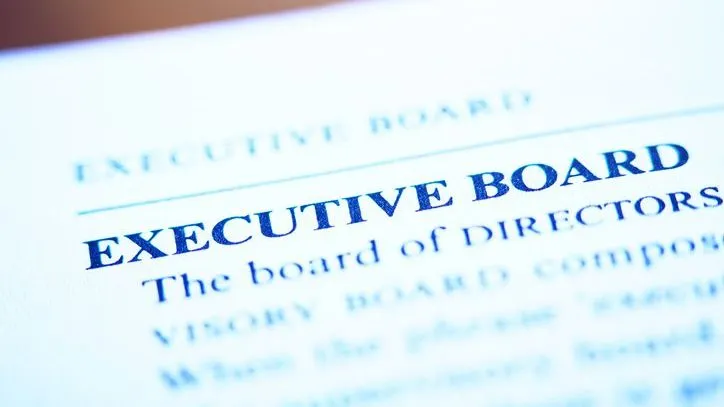Corporate board members are entrusted with significant responsibilities that directly impact the success and ethical standing of a company. The fiduciary duties of directors comprise two primary responsibilities: a duty of care and a duty of loyalty to the company. By fulfilling these responsibilities, among others, directors can ensure ethical governance and protect the interests of shareholders, thereby fostering trust and stability within the organization.
If you are looking for financial guidance or help with your investments, consider connecting with a fiduciary financial advisor.
What Is a Corporate Board of Directors?
A corporate board of directors comprises individuals who are chosen by shareholders to supervise the management and operations of a company. This board usually includes both internal executives and external members. Their primary role is to ensure the company operates in the best interests of the shareholders. The board offers strategic direction, makes significant decisions and evaluates the company’s performance.
The board of directors plays an important role in corporate governance, setting policies and overseeing their implementation. They are responsible for hiring and evaluating the CEO, approving budgets and ensuring compliance with laws and regulations. By providing oversight and accountability, the board helps maintain the company’s integrity and long-term success.
Understanding Fiduciary Duty
Fiduciary duty is a legal obligation where one party, known as the fiduciary, must act in the best interest of another party, typically a beneficiary. This duty encompasses a relationship of trust and confidence, requiring the fiduciary to prioritize the beneficiary’s interests above their own.
Fiduciary duty commonly applies to individuals and entities in positions of authority or trust, including corporate directors, financial advisors and trustees. Directors of companies, for example, must act in the best interest of the shareholders, ensuring that their decisions benefit the company and its owners.
Breaching fiduciary duty can have serious legal consequences, including lawsuits and financial penalties. This underscores the importance of fiduciaries adhering to their responsibilities diligently. Legal frameworks across various jurisdictions strictly enforce fiduciary duties to ensure that trust and confidence are upheld in fiduciary relationships.
Fiduciary Duties of Directors

Directors have fiduciary duties, which are legal obligations to act in the best interest of the company and its shareholders. These duties include the duty of care, which requires directors to make informed and thoughtful decisions; and the duty of loyalty, which mandates that directors prioritize the company’s interests over their own.
Duty of Care
Corporate directors are entrusted with the responsibility of making informed and prudent decisions on behalf of the company. This duty of care requires directors to act with the same care that a reasonably prudent person would take under similar circumstances. Directors must thoroughly analyze information, seek expert advice when necessary and avoid rash decisions to fulfill this duty effectively.
Duty of Loyalty
The duty of loyalty mandates that directors prioritize the interests of the corporation above their own personal gains. Directors must avoid conflicts of interest and ensure that their actions benefit the company. This includes disclosing any potential conflicts and recusing themselves from decisions where their personal interests could interfere with their ability to act impartially.
What Laws Determine Fiduciary Duties?
Fiduciary duties are primarily governed by state laws, which vary across states. Delaware, known for its robust corporate law, sets influential standards through the Delaware General Corporation Law (DGCL).
Judicial decisions shape fiduciary duties by interpreting and applying principles in various cases, influencing corporate governance practices. Meanwhile, federal laws also inform the responsibilities and duties of corporate boards of directors. For example, the Sarbanes-Oxley Act of 2022 was enacted in response to corporate scandals, imposing strict requirements on corporate governance and financial disclosures. Notably, Section 404 mandates reporting on the adequacy of internal controls over financial reporting.
Of course, a corporation’s internal documents can also outline specific fiduciary responsibilities and governance practices.
Other Fiduciary Responsibilities

Corporate boards of directors may hold a range of fiduciary duties that go beyond the well-known duties of care and loyalty. These four additional responsibilities play an important part in maintaining corporate integrity and trust:
Duty of Good Faith
Directors may be required to act in good faith, meaning they should perform their duties honestly and with a genuine intention to advance the best interests of the corporation. This duty encompasses a commitment to honesty, integrity and ethical conduct in all board activities. Acting in good faith helps build trust and confidence in the board’s governance.
Duty of Confidentiality
Corporate directors may also have a fiduciary duty of confidentiality. Maintaining the confidentiality of sensitive corporate information is another key responsibility of directors. They must protect proprietary information and refrain from disclosing it to unauthorized parties.
Duty of Disclosure
However, transparency is also fundamental in corporate governance. Directors are obligated to fully disclose any conflicts of interest, material facts or other relevant information that could impact decision-making processes. This duty of disclosure ensures that all board members and stakeholders are informed and can make well-considered decisions.
Duty of Oversight
Directors have an oversight duty to ensure that the company complies with laws, regulations and internal policies. They must establish effective monitoring systems to detect and address potential issues before they escalate. This duty includes staying informed about the company’s operations and financial health, thereby preventing and mitigating risks.
Bottom Line
The fiduciary duties of corporate board members are essential in maintaining ethical governance and protecting shareholder interests. By upholding the duties of care, loyalty, good faith, confidentiality, disclosure and oversight, directors can ensure that the company operates with integrity and transparency. These responsibilities not only foster trust and stability within the organization but also safeguard against legal and financial repercussions.
Tips for Finding a Financial Advisor
- When choosing a financial advisor, you’ll want to be sure you’re clear on how your advisor earns compensation. Fee-only financial advisors are compensated solely by the fees their clients pay for advice. Fee-based advisors, on the other hand, collect fees from clients, but may also earn compensation for selling third-party products and services, like insurance or securities. This creates a conflict of interest, since the advisor may potentially make a recommendation for the purpose of generating a sales commission. Fee-based compensation isn’t inherently bad or unethical – but it can create a gray area for the client.
- Finding a financial advisor doesn’t have to be hard. SmartAsset’s free tool matches you with up to three vetted financial advisors who serve your area, and you can have a free introductory call with your advisor matches to decide which one you feel is right for you. If you’re ready to find an advisor who can help you achieve your financial goals, get started now.
Photo credit: ©iStock.com/PeopleImages, ©iStock.com/alvarez, ©iStock.com/RapidEye
